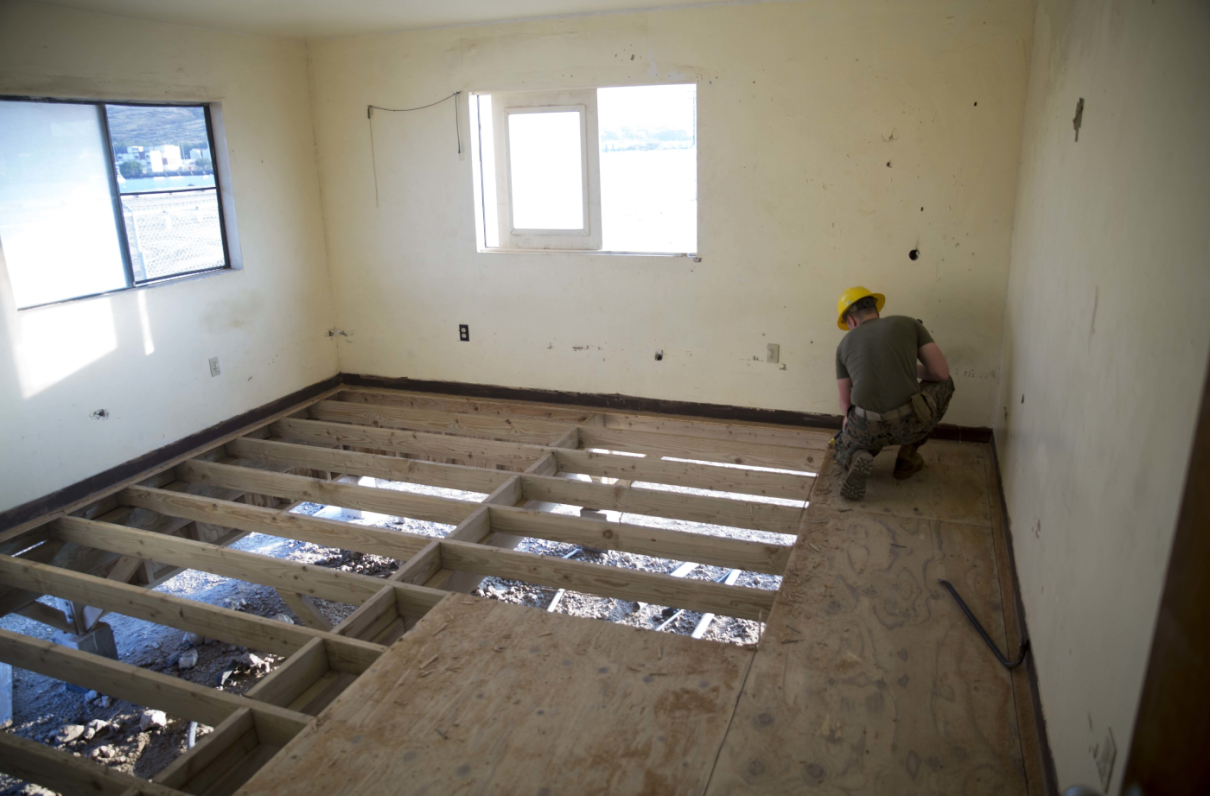A children's health care advocacy coalition is pushing for a meeting with leaders from the Defense Health Agency (DHA) to identify ways the military can address health and safety concerns with its housing.
The Tricare for Kids Coalition, of which MOAA is a member, requested the meeting in a Jan. 17 letter to Capt. Edward Simmer, USN, Chief Clinical Officer of the TRICARE Health Plan at the DHA. The coalition cited concerns with health and safety hazards; reports published late last year found military housing containing mold, lead, and vermin.
Eryn Wagnon, director of government relations for military family policy at MOAA, said veteran services organizations such as MOAA support the efforts to work together to find solutions.
“It is important for advocates, like the Tricare for Kids Coalition, to understand the issue thoroughly and learn from DoD and DHA what they are doing to address families' concerns to better inform our parallel efforts to find a solution,” Wagnon said. “Military families and servicemembers should not have to jump through hoops and go all the way to senior leadership to fix basic health and safety hazards in their homes and barracks. There needs to be a better way.”
Read the letter below.
Dear CAPT Simmer:
The Tricare for Kids Coalition is an ad hoc stakeholder group of children's healthcare advocacy and professional organizations, disability advocacy groups, military and veteran's service organizations and military families committed to ensuring that the children of military families receive the unique care, support and services they need.
We write to express concern with health and safety hazards in military base housing. Recent news reports, government report and stories shared with us from military families detail a picture of negligence in proper oversight and abatement of health and safety hazards such as mold, lead and vermin in military housing. Reports indicate these hazards have negatively impacted the health and wellbeing of servicemembers and their family members. Unclear to our coalition and military families is the role DHA plays in mitigating these hazards through oversight, medical treatment and communications with housing officials and public private partners. Equally unknown is the degree of effort to document and track those individuals who have already presented with conditions or symptoms indicative of exposure.
Toward finding solutions, we respectfully request a meeting with the appropriate DHA officials to have a candid roundtable discussion to better understand the issues and identify ways we can work collectively to improve military housing and barracks. In preparation for further discussion, we have compiled a list of questions we hope to have clarified, attached.
Thank you so much for your consideration.
Sincerely,
Kara Tollett Oakley, Chair
Questions for DHA Health and Safety Hazards in Military Housing
- What has DHA done in light of news reports of health and safety hazards in military housing?
- Have practitioners at MTFs been made aware of the mounting health and safety hazards on base or on post? What steps have MTFs taken to provide their staff with proper training to identify, address, and document environmental related health issues?
- Do practitioners ask patients about their living condition at appointments (i.e., “Do you live in a pre-1978 home, or are there signs of mold in your home?”)
- Do MTFs communicate health concerns to housing officials? And vice versa? What is the standard operating procedure if a practitioner is concerned about health hazards in a military home (compared to abuse or neglect of children or spouse?)
- Can MTFs order mold/air/water/lead testing for a home if they are concerned for a patient's wellbeing? Can families get these tests paid for by the military or Tricare if it is for potential medical diagnoses?
- Do the MTFs have an obligation to ask for lead testing in children living in historic homes on base and monitor them while they live in the home?
- Narratives from families suggest a negative experience with MTFs in terms of diagnosing/identifying illnesses from environmental hazards and often go out of network for a second opinion. What can DHA do to improve this experience?
- Have MTFs/DHA collected data on reports of environmental illness on military installations? Does DHA have data on medical conditions related to lead/mold exposure?
- If a servicemember falls ill from environmental hazards in military barracks, can they be moved or removed from barracks?
- Do DHA environmental health officials do walk-throughs or assessments of military housing/barracks? What oversight or role do they play?
- Has DHA provided best practices in abating health and safety hazards to DoD housing leadership? Does DHA provide recommendations on remediation of health hazards in housing? Are there lessons learned and expertise from other federal agencies that could be leveraged in addressing these hazards?
Summary: As you can discern from our line of questioning, the Coalition's overarching concern is the apparent lack of ownership of these known health problems which prevents them from being addressed promptly and appropriately. So far it appears to be common to place blame for housing issues on the Public-Private Partnerships, or attribute the problems to lack of funding.
The bottom line is the health and wellbeing of our servicemembers and their families, including our most vulnerable children - thus, we are committed to ensuring that both operational and functional leaders take ownership of these conditions and promptly effect the necessary solutions.
Amanda Dolasinski is MOAA's staff writer. She can be reached at amandad@moaa.org. Follow her on Twitter @AmandaMOAA.

